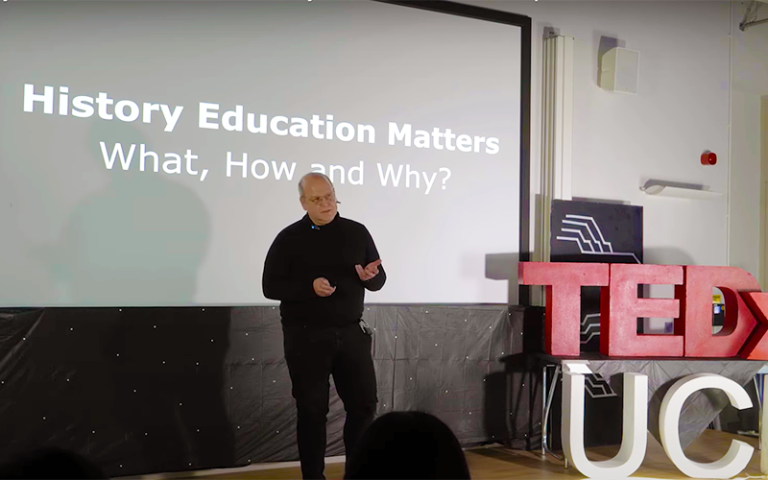Talk by IOE academic featured on TEDx
18 May 2023
Dr Arthur Chapman discussed why history education matters and how the curriculum can be reshaped to engage more children.

Dr Chapman spoke to the UCL student TEDx society about how children can grow to value what they learn in history lessons. He reflects on the challenges of teaching history at school, noting that the curriculum must be diverse and relevant enough for pupils to feel a greater connection to the subject.
“History can be made to matter if you make it relevant to children and if you help it connect with their lives and give them an active role,” he says. Part of this is giving students the skills to think critically about narrative and about memory, to question what gets remembers and what is forgotten. This, he says, can open up “the politics of representation.”
Dr Chapman is the Academic Head of Learning and Teaching at the Centre for Doctoral Education and the Programme Leader of the Doctor in Education (EdD). His research interests lie in children's historical thinking, and teaching and learning about historical interpretations. He is also currently undertaking research exploring children's thinking about historical narratives.
He says: "I was asked to do this by a doctoral student who is involved in TEDx at UCL. It was great to have the opportunity to work with a student society, and I'd like to thank TEDx at UCL for being so supportive.
I have been writing and thinking about aims in history education for some time now. I think it is becoming increasingly urgent to rethink what we're trying to do in history.
It's vital in all education to be clear about our purposes but particularly so in history, which helps students think about personal and collective identities, the nature of humanity, actual pasts and possible futures and our directions of travel."
Watch the video
Related links
- View Dr Chapman's research profile
- Centre for Doctoral Education
- Curriculum, Pedagogy and Assessment
- Doctor in Education (EdD)
- History PGCE
- Why go into teaching?
Image
A screenshot of the video via TEDx UCL.
 Close
Close

